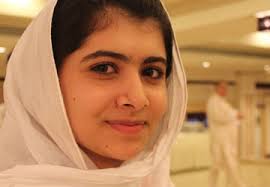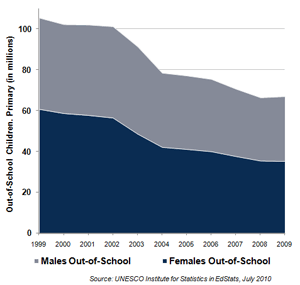What did you do on your 16th birthday?
Jul 12th, 2013 | By admin | Category: Social Justice, Youth RightsBy Suzanne York, www.howmany.org
If you are looking for a little inspiration, and who isn’t these days, a soft-spoken teenager fighting for girl’s rights has emerged as an unsung hero.
At age 15, Malala Yousafzai of Pakistan was shot in the head by a Taliban gunman who wanted to kill her for her outspokenness on girls’ education.
Now, less than a year after her attack, and many surgeries later, Malala is celebrating her 16th birthday by speaking at the United Nations. Her topic? The importance of education, of course.
“They thought that the bullet would silence us. But they failed,” Malala told her UN audience.
Gordon Brown, the former British prime minister and now UN education envoy, noted this sad truth – “the words the Taliban never wanted her to hear: happy 16th birthday, Malala.”
Today, around the world, there are 57 million girls and boys who will not be attending school. They will not be there tomorrow, or the day after. And that is what motivates Malala.
For girls in particular, the World Bank reports that there are 35 million who aren’t in school. While there are still more females out of school than males, the state of girls’ education today has improved significantly over the past decade. Almost half of the world’s out-of-school girls are in Sub Saharan Africa and around a quarter are in South-Asia.
Educating girls (and frankly everyone) is a no brainer. Educated people are empowered people. Some benefits of girls’ education include:
- an educated girl will invest 90% of her future income in her family, compared to 35% for a boy;
- every year of education delays a girl’s marriage and reduces the number of children she has;
- improved health of children, including lower infant and child mortality rates;
- the child of an educated mother is more likely to attend school;
- lower poverty rates – girls who have one more year of education than the national average earn 10 to 20 percent more, on average – even more than the increase for boys;
- educated females are more likely to resist abuses such as domestic violence, traditions like female genital cutting, and discrimination at home, in society or the workplace.
Raising awareness and speaking out on the need to educate girls can help overcome some of the barriers to school attendance: tuition fees; distances to travel to school; lack of female teachers, cultural biases or traditions that educate boys only or keep girls to work at home; lack of sanitary napkins; lack of separate toilet facilities; sexual harassment or abuse by teachers or other students; and child marriage.
Malala’s story and her courage is providing the inspiration and will to prioritize girls’ education around the world. The teenager is calling on world governments to provide every child with free education. Let’s hope they listen.
“The power of education frightens them,” Malala said at the UN. “They are afraid of women. The power of the voice of women frightens them.”
To support her cause, sign the Stand with Malala petition that is calling for education for the 57 million children around the world who do not go to school.
Suzanne York is a senior writer with the Institute for Population Studies.
[photo of Malala: www.moralheroes.org]


